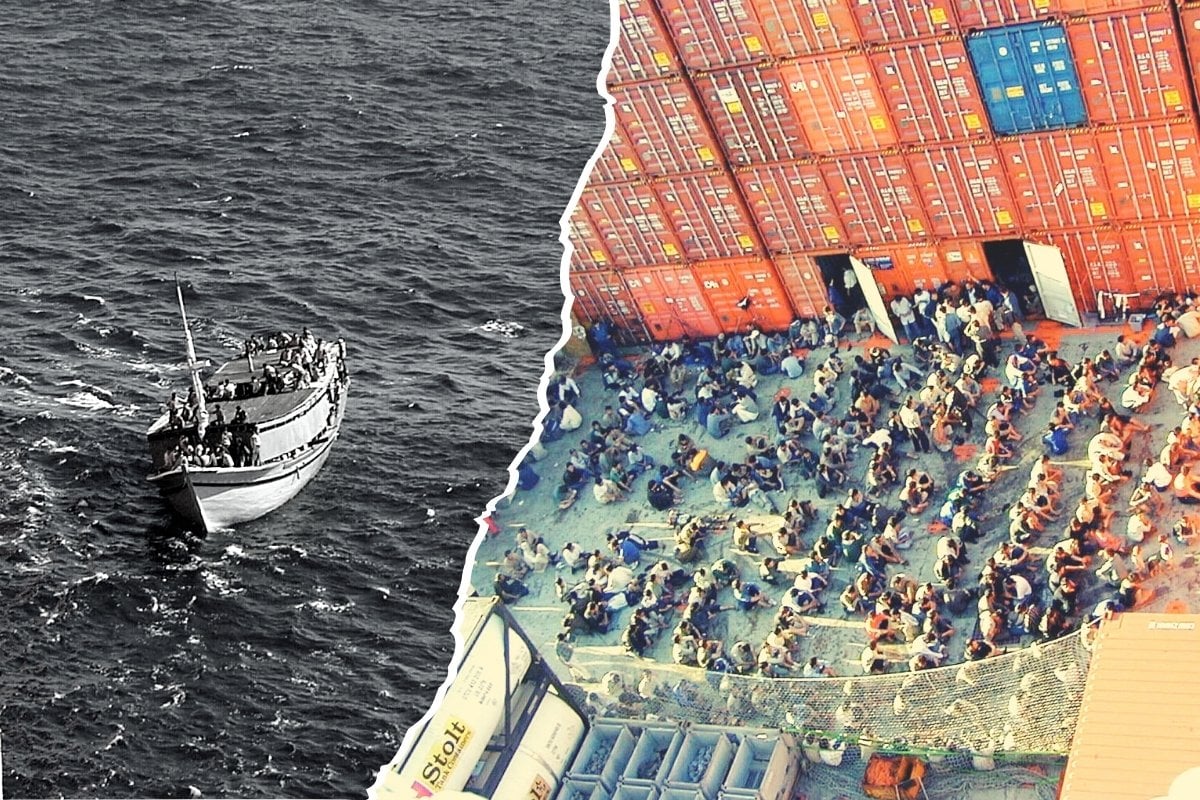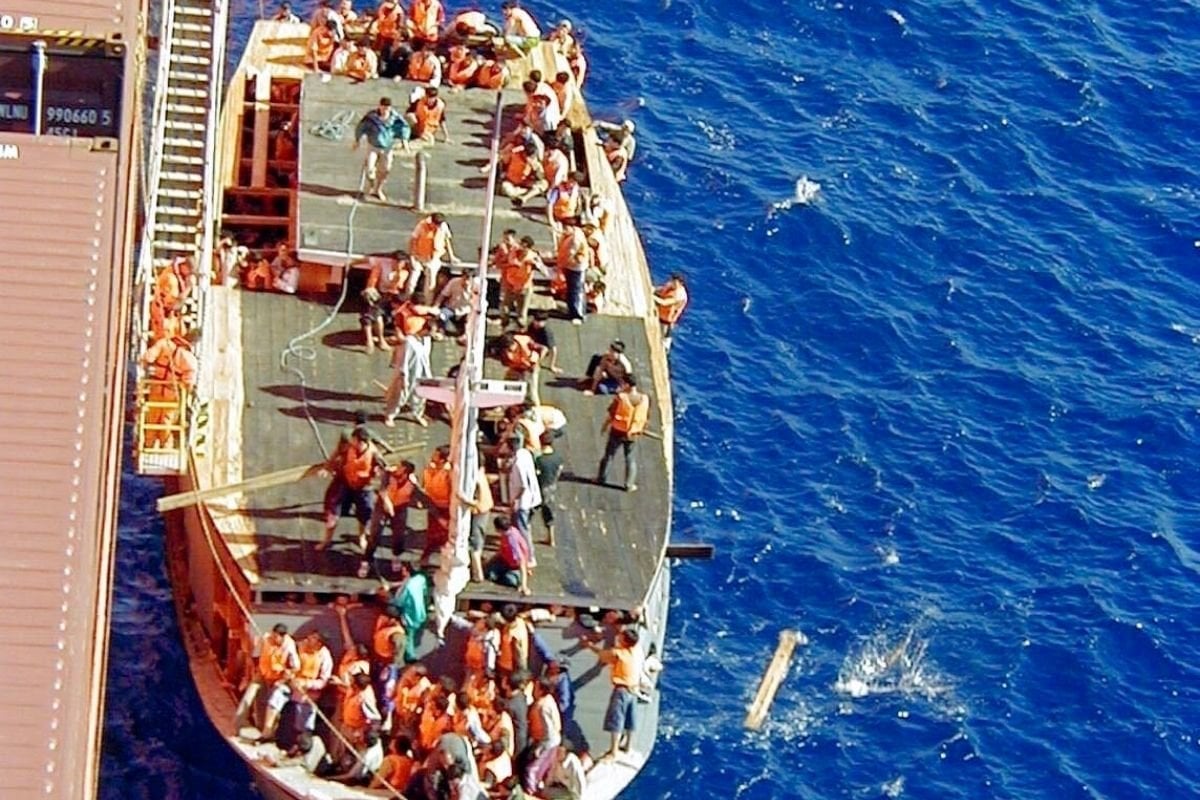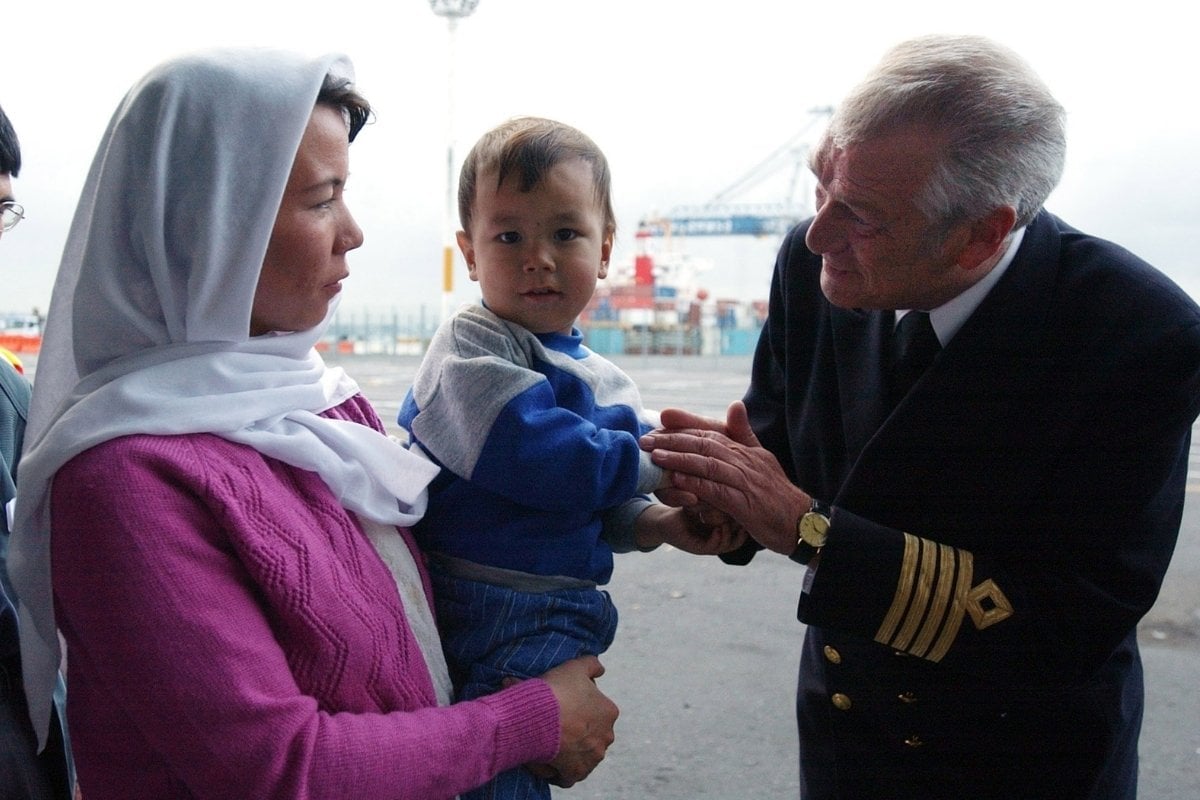
One night in August 2001, seven-year-old Abbas Nazari was startled awake by his mother. "We're leaving."
The Afghan boy and his parents had been in Indonesia for two months, waiting for news about their promised passage to a new life in Australia. In the darkness, they scrambled to pack their belongings and were rushed by bus to nearby Port Merak. From there, it was into the belly of a ship called the KM Palapa.
The ship, a tired wooden fishing vessel, was built to hold 40 people. There were 433 asylum seekers crammed on board.
Most, including Abbas and his family were members of Afghanistan's Hazara ethnic minority, which had been brutally persecuted by the Taliban. To these desperate souls, Australia represented a life free from the threat of torture, beatings, imprisonment and massacre. It represented safety. A new beginning.
If only they could make it there.
On the second day traversing the Indian Ocean, the Palapa's engine failed. That night, it weathered a severe storm.
For Abbas, it was the most frightening point of the journey. For his father, too.
"He thought that he was offering his family a chance at a fresh start, and now in this situation, when our boat was at the mercy of the waves, he thought that he'd condemned us to death," Abbas said in a 2012 TEDx talk.
"Thinking back on it today, I think how the hell did we survive that night, because it was a miracle."































































































